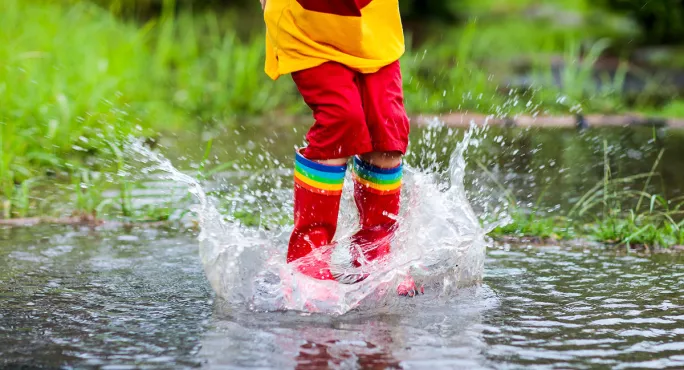New primary science curriculum proposed by experts

A new primary science curriculum proposed by subject experts has recommended “essential experiences” all children must have by age 11.
The Royal Society of Chemistry, Institute of Physics, Royal Society of Biology and Association for Science Education (ASE) have called for reform to the primary science curriculum.
In their framework for a new curriculum, the societies say “essential experiences” in class time children should have includes eating ice lollies, playing in puddles and watching rubbish being collected.
The recommendations have been made after the new Labour government announced a review of curriculum and assessment, with recommendations set to be published next year.
‘Strong emphasis on purpose’ needed
However, Sarah Hannafin, head of policy at the NAHT school leaders’ union, said using real-life scenarios and objects to bring science to life already happens in schools around the country under the current curriculum.
“What is needed is not a whole new science, technology, engineering and maths (Stem) curriculum, but to build upon what works best and a reduction in the current bloated programme - time is currently a big issue and there is scope to improve the experience of pupils and teachers by streamlining content,” she added.
The new recommended curriculum was drawn up over five years by an expert group of primary educators who formed the Primary Curriculum Advisory Group (PCAG), and the societies hope it will inform the curriculum review.
Experts said the new curriculum should have a “strong emphasis on purpose” that highlights why and how each part of the curriculum is taught.
It should also help all children to feel included in the sciences by creating opportunities for teachers to teach in relevant contexts for their pupils, and help children get a sense of the nature of science through practical experience.
These reforms will “reduce inequalities” in Stem education, experts added.
- Revealed: What Ofsted thinks about science teaching in schools
- Secondary science: ‘Struggling’ teachers can’t afford to run practical lessons
- Resources: ‘Outdated’ facilities are harming learning, warn teachers
Institute of Physics senior adviser in learning and skills Charles Tracy said: ”Many children enjoy making noise - but harnessing this in the classroom can help teach the basics of concepts such as pitch and volume.
“We want to help the review team to make the primary science curriculum as inclusive as possible.
“We are recommending that teachers should be supported to bring global, historical and societal context into their science lessons and that they should build science capital equitably by giving all students access to genuine scientific experiences that are currently the preserve of a lucky few.”
Experiences children should have
Knowledge maps from the PCAG include the knowledge children should have by age 11 in biology, chemistry and physics, what does not need to be included in the curriculum, and essential experiences.
For biology, these experiences include visiting a garden centre and a farm, and growing plants and eating them.
Recommended experiences in chemistry include getting involved in local clean-up experiences, drawing pictures on a mirror and washing something.
For physics, recommended experiences include going to a playground to explore motion, playing with toy cars on different surfaces and experiencing complete darkness.
Marianne Cutler, director of policy and curriculum innovation at ASE, said the association recommends the knowledge maps in the report.
She added: ”It’s crucial that we support primary science leaders, curriculum leaders and senior school leaders in providing an equitable and meaningful experience of science and this report will inform ASE’s policy, curriculum and professional development work.”
For the latest education news and analysis delivered directly to your inbox every weekday morning, sign up to the Tes Daily newsletter
Register with Tes and you can read two free articles every month plus you'll have access to our range of award-winning newsletters.
Keep reading with our special offer!
You’ve reached your limit of free articles this month.
- Unlimited access to all Tes magazine content
- Save your favourite articles and gift them to your colleagues
- Exclusive subscriber-only stories
- Over 200,000 archived articles
- Unlimited access to all Tes magazine content
- Save your favourite articles and gift them to your colleagues
- Exclusive subscriber-only stories
- Over 200,000 archived articles
topics in this article



